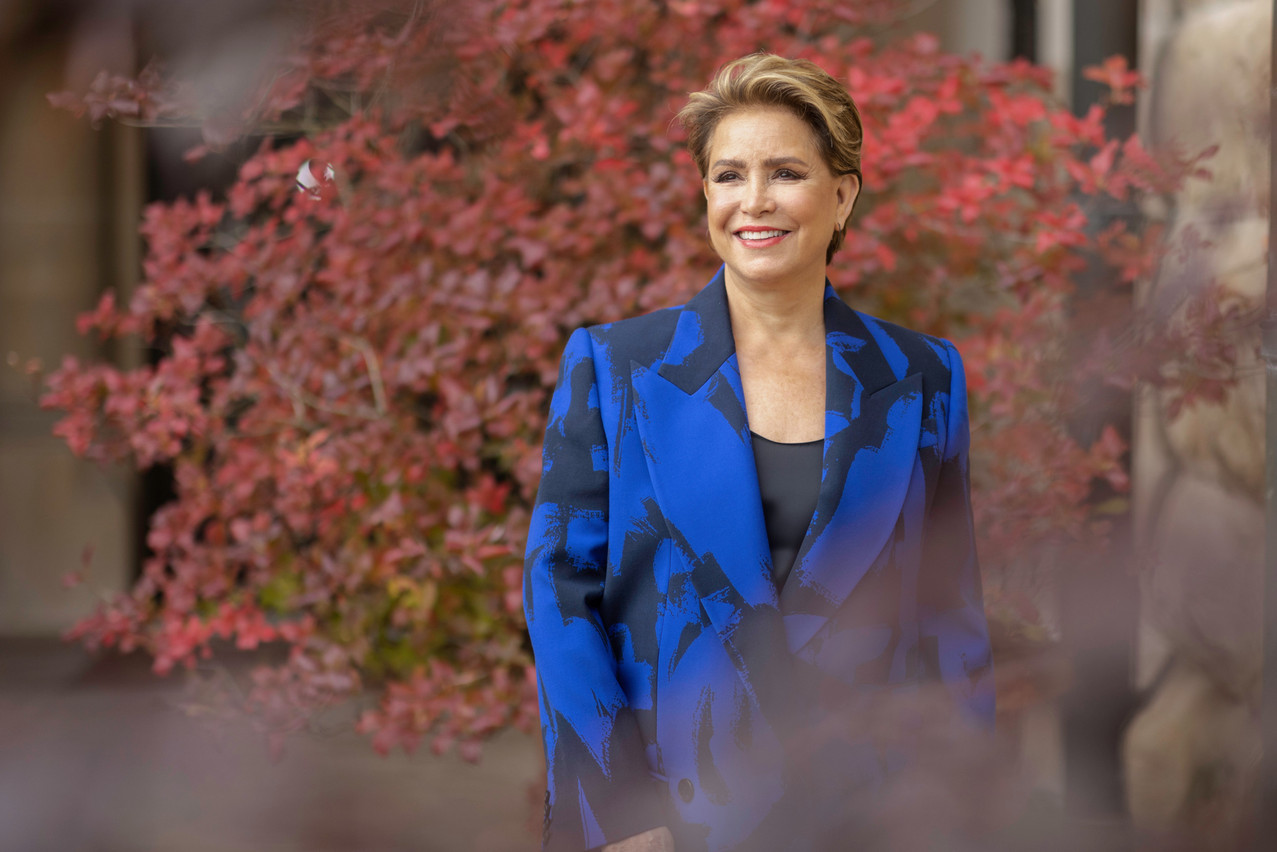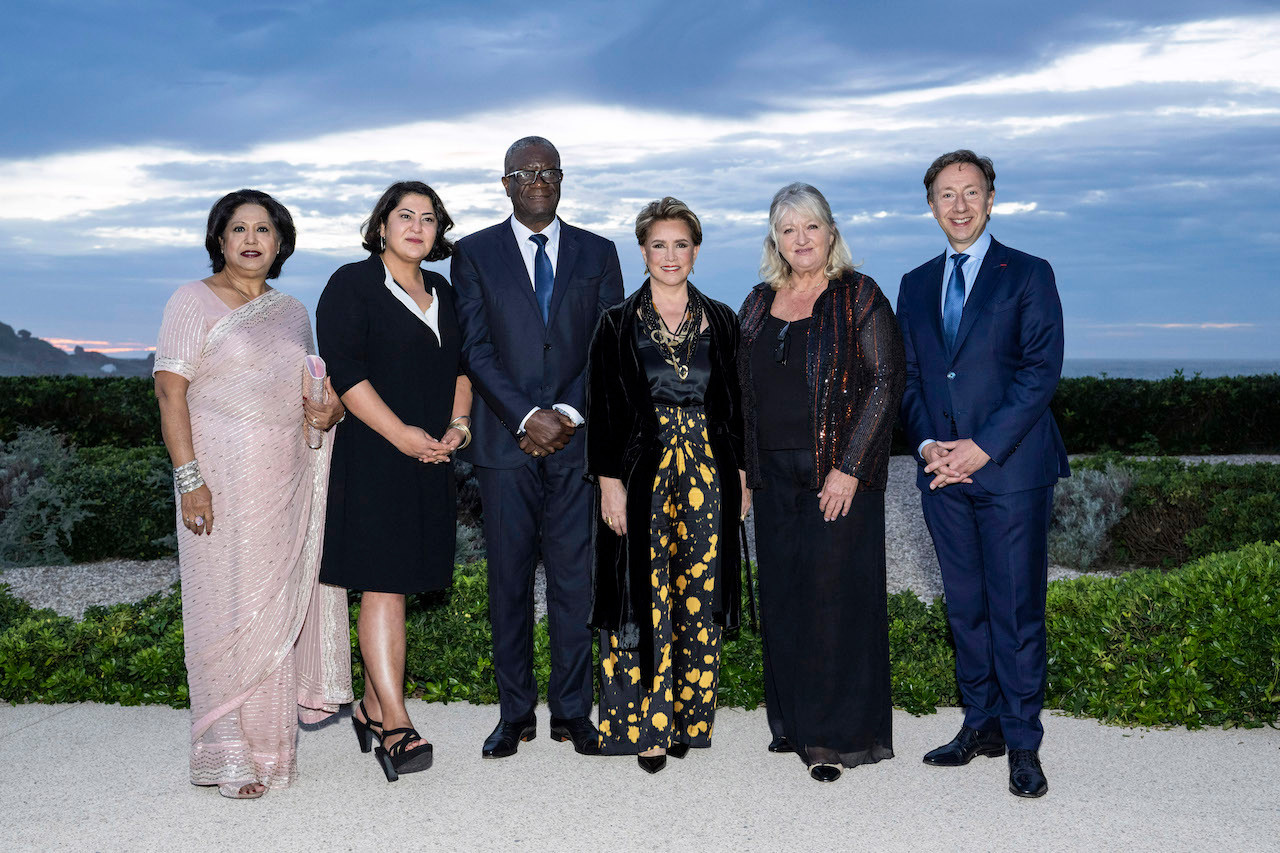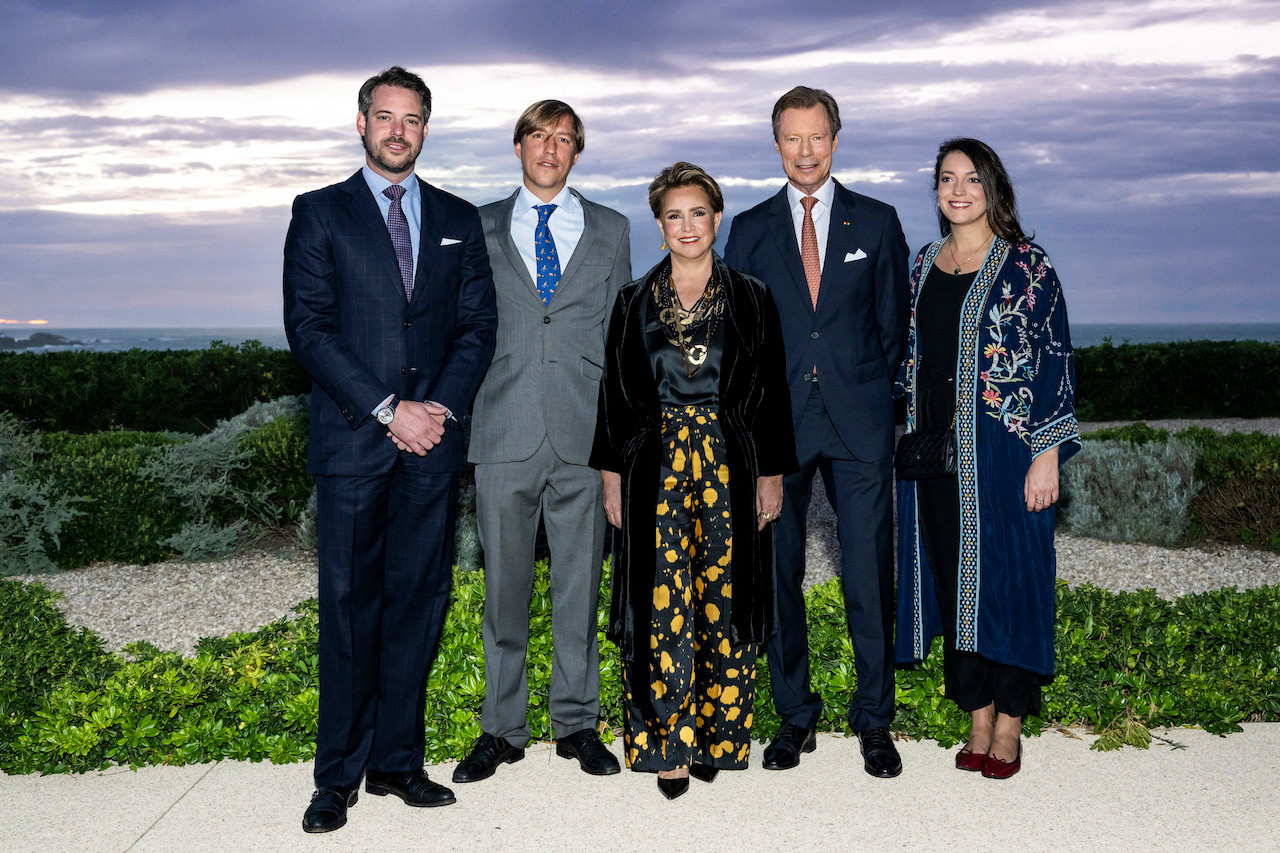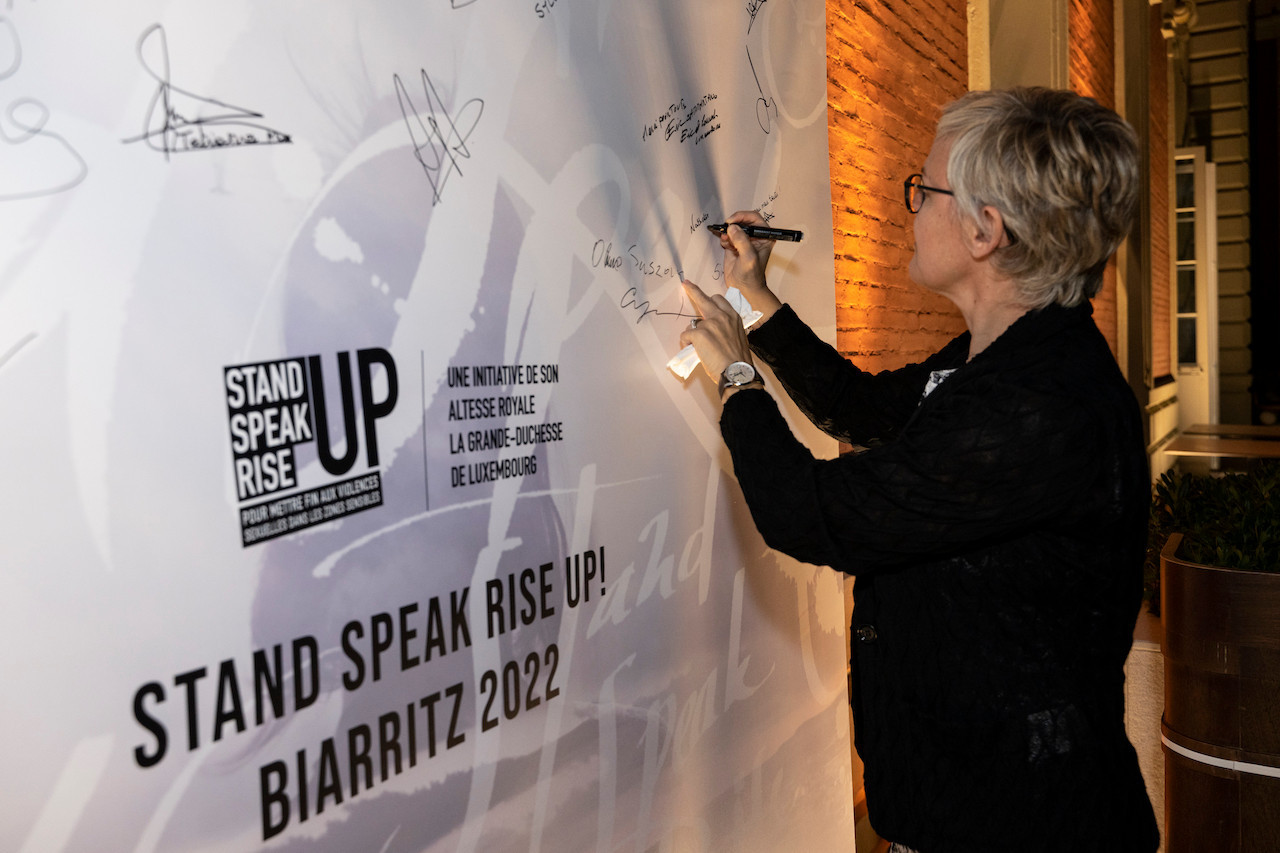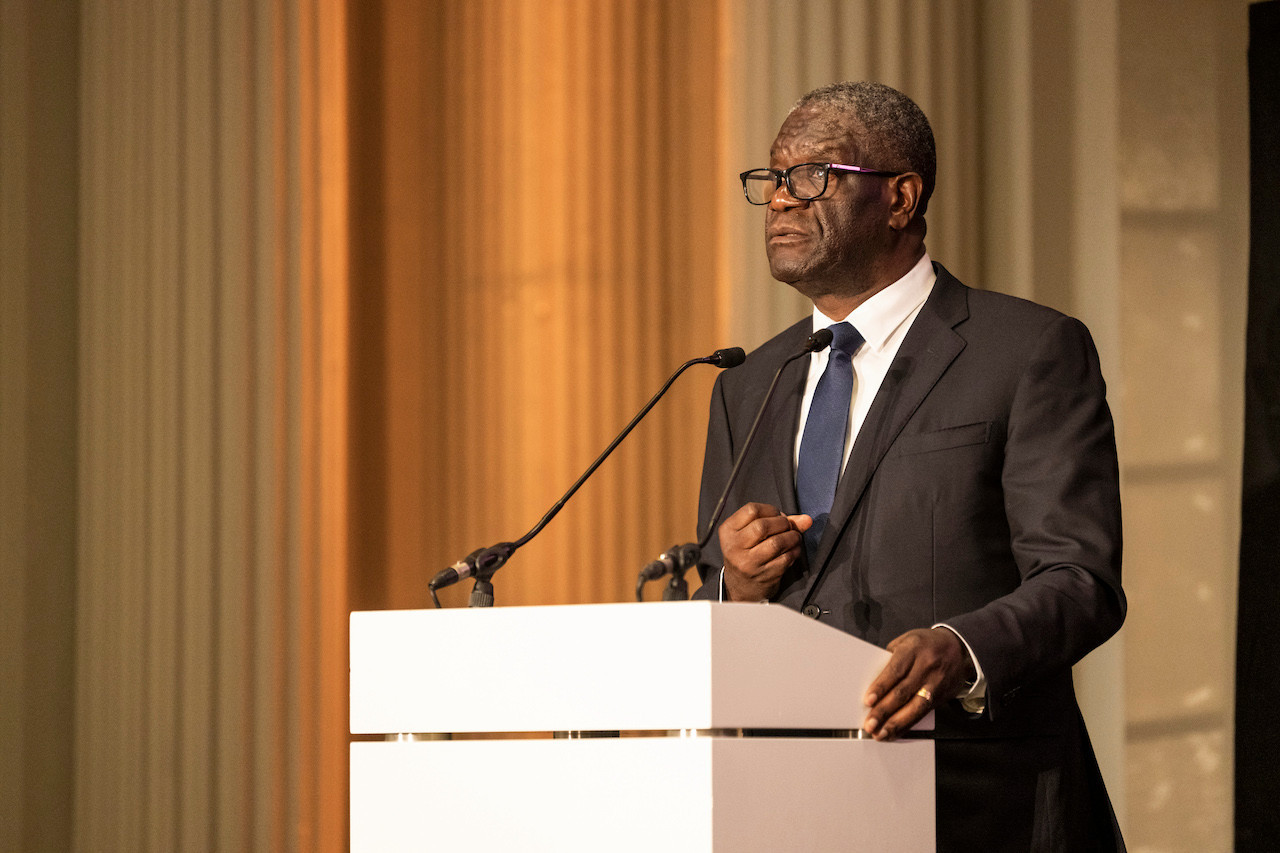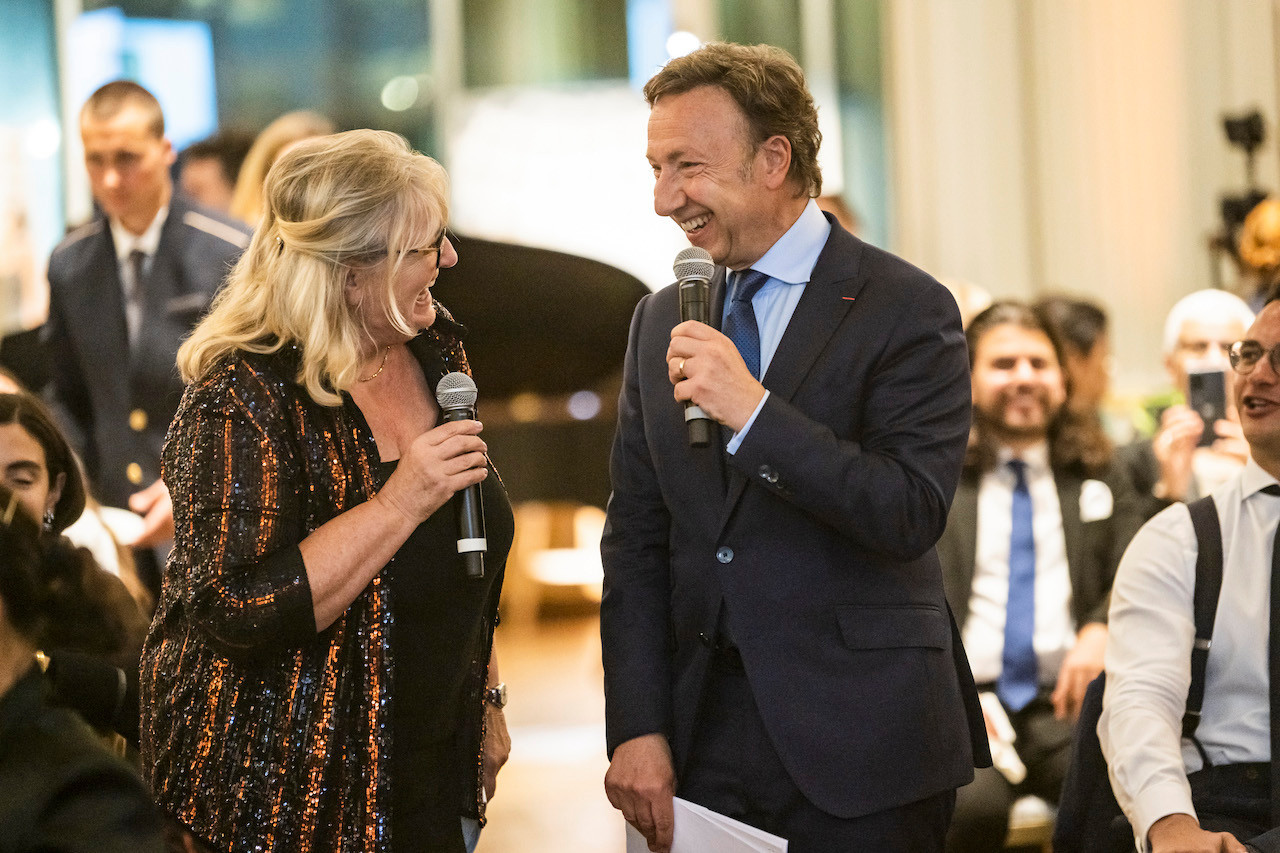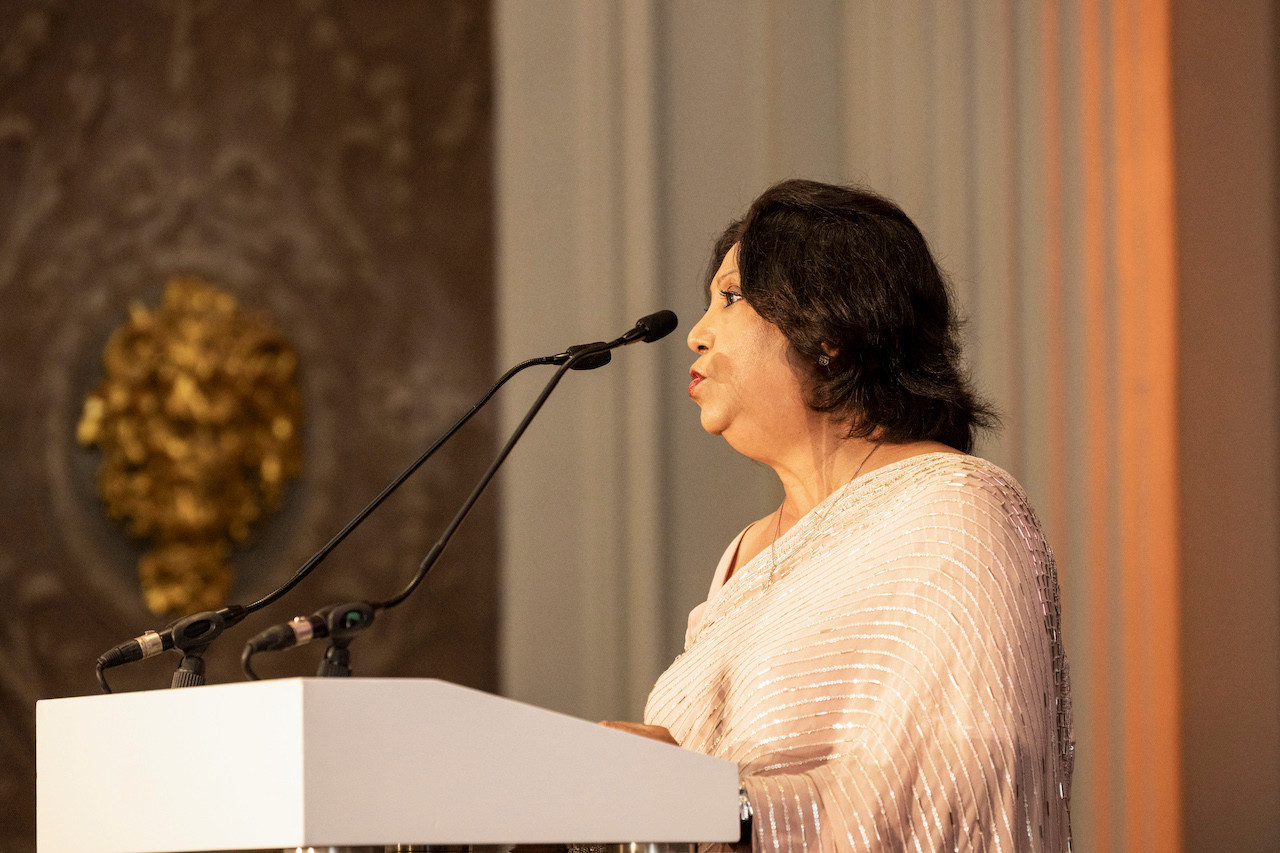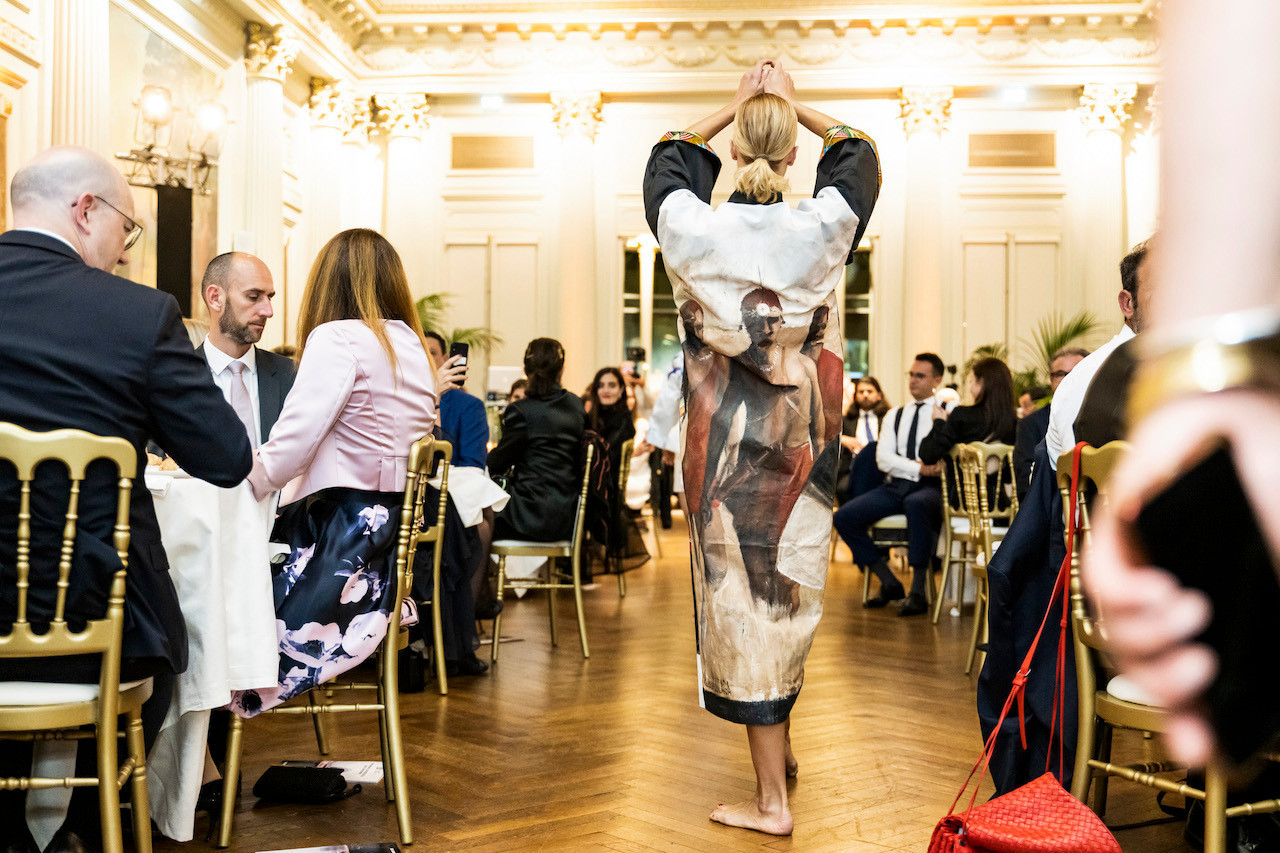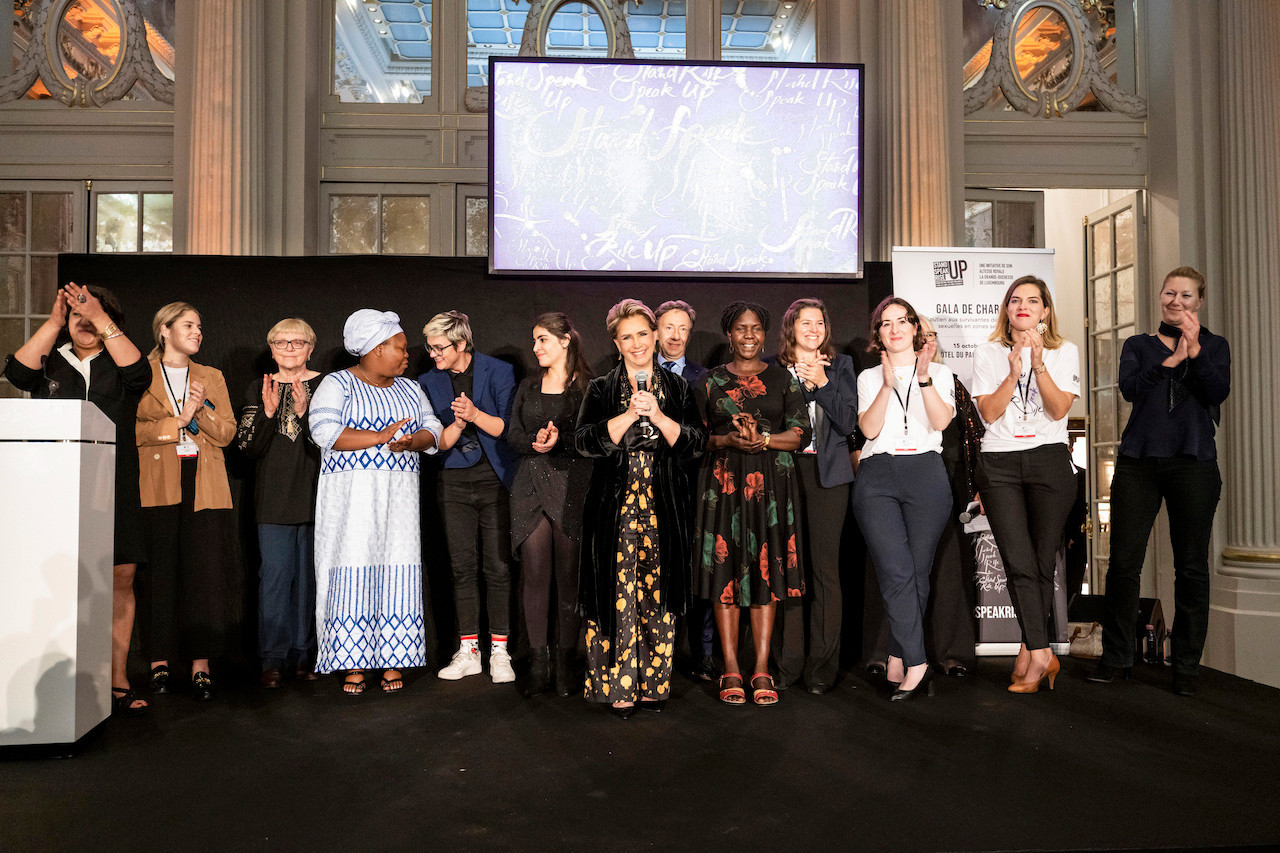The elegant setting of her favourite room in the Château de Berg may seem far removed from the subject being addressed, but speaks with serene clarity and sometimes fervent passion about her efforts to bring to the world’s attention crimes against humanity that for too long have been ignored.
Some two and a half years after it was launched, the Stand Speak Rise Up! platform has not only raised awareness but also proven to be of vital help to the victims of sexual violence as a weapon of war in conflict zones and fragile environments. Indeed, the château has special memories for the grand duchess in the context of the .
Ahead of a gala event to raise awareness and funds, the grand duchess recalls getting to know 50 survivors she had invited to Luxembourg for the launch event. They had spent a week in the grand duchy and that included a visit to the château. “It was important for me to know them, and for them to know me before this big event started, so that they would feel, with the horrors that they’ve gone through, as comfortable as possible,” the Grand Duchess explains.
Beautiful resilience
“I was very grateful when they started really confiding in me and doing what they never do. They do not cry in front of people that they do not know. And they do not tell their story. And each one of them told their story. We cried together. We were in each other’s arms really sobbing. At the same time, they have such resilience that we even ended up singing together. It was extraordinary, one of the most beautiful experiences of my life.”
That moment is testimony to the commitment and personal engagement that Grand Duchess Maria Teresa has for the Stand Speak Rise Up! cause. She has long been a champion of women’s and children’s rights and has committed to social and humanitarian issues. Back in 2019, she explained that this stemmed from reading a lot about social engagement as a young girl. “Little by little, it became evident that it was what I wanted to do later on,” she said at the time. When deciding what to study at university, she chose political sciences over law because she wanted a wider view of the geopolitical situation of the world. “So that maybe I would have more tools to defend those who cannot defend themselves.”
We gave them a voice, we put the victims centre stage, which is not something that is usual at international meetings of this scale.
The inspiration to establish the platform came after hearing Nobel Peace Prize winner Dr Denis Mukwege speak at a conference.
Mukwege is a renowned gynaecological surgeon as well as the founder and medical director of Panzi Hospital in Bukavu in the Democratic Republic of the Congo. He is recognised as the world’s leading expert on “repairing” the internal physical damage caused by rape. Together with his team, he has treated more than 50,000 victims in east Congo. In 2018, he received the Nobel Peace Prize, with Yazidi activist and rape survivor Nadia Murad, for his efforts to end the use of sexual violence as a weapon of war and in armed conflict.
The use of violence against women in war is a problem as old as history, the grand duchess has previously stated. But the scale is now worldwide, and that is what is frightening. “We are not only talking about war, but we are also talking about situations where there are guerrillas, situations in refugee camps.”
UN resolution
Impressed by his work, the grand duchess later invited Mukwege to meet with her. “I was very moved by the stories of the victims, the horror of what was going on. I asked what can I, in my position, do to help you?” Mukwege’s answer was simple and effective, and proved to be a vital catalyst for what was to follow. “He said, ‘Well, these women need someone who can give them a platform.’ So we gave them a voice, we put the victims centre stage, which is not something that is usual at international meetings of this scale.”
What the victims said was shocking and broke taboos. As the grand duchess relates, they said that one of the major problems that nobody was addressing was the children born of rape during conflicts. “We put them on the map, thanks to the survivors,” she says now. “It is a topic that neither the United Nations nor anyone else had really addressed.”
Indeed, the grand duchess says she is “very proud” that the UN Security Council in 2019 passed a “landmark” resolution--number 2467--that strengthens justice and accountability, and calls for a survivor-centred approach in the prevention and response to conflict-related sexual violence.
It is Luxembourg that I am exporting. It is Luxembourg prestige and know-how, and it is my cause
Crucially, Resolution 2467 also calls for “the provision of reparations for survivors as well as livelihood support to enable them to rebuild their lives and support their families, including the children born of sexual violence in conflict who are also stigmatised and suffer in silence and shame, often stateless, and acutely vulnerable to recruitment and radicalisation by armed groups.”
The adaptation of the resolution was down to the tireless work of the UN special representative on sexual violence in conflict, Pramila Patten (see page 21).
More recently, in July this year, a court in Bosnia and Herzegovina took the first significant step to grant children born of rape in war legal recognition within the newly adopted law on civilian victims of war. Today, there are between 2,000 and 4,000 children born out of that war.
That case was fought by innovative legal group Trial International, jointly with the association Forgotten Children of the War. Philip Grant, executive director of Trial International, is one of the scientific committee members of Stand Speak Rise Up!. “Giving the means to these women to have access to trusted international lawyers who know specifically this problematic and know how to defend these women is a concrete action,” the grand duchess asserts.
“So these are major advancements that came from the international forum of Luxembourg,” the grand duchess says. She takes pride in the fact that Stand Speak Rise Up! started in Luxembourg. “It is Luxembourg that I am exporting. It is Luxembourg prestige and know-how, and it is my cause.”
The emphasis on the way in which the association and its work is helping put Luxembourg on the map is not coincidental. As a result of the so-called Waringo report into the royal household, the grand duchess has not been allowed to use resources or staff from the household to assist in Stand Speak Rise Up!. “Since two or three years, my humanitarian work has become my private life, as they have called it,” she explains. “I don’t have [institutional] help anymore. I have my private help. We are a group of four women, including me, organising everything.”
Ukraine rapes raise awareness
In just three years, two of which were severely interrupted by the covid pandemic, the association has clearly achieved quite a lot. “We’re a young foundation, and fundraising had not been easy in that time,” the grand duchess says.
But she has noticed a change in awareness of the problem of violence as a weapon of war and in interest for the association since the start of the Russian invasion of Ukraine. “We heard that women in Ukraine were being raped in great numbers by Russians, and that was a big change. Because, all of a sudden, everybody realised that this is going on today and only a few hours away from Luxembourg, or Paris or London or Frankfurt. It really brought the subject home.”
To enhance awareness and collect more funds, Stand Speak Rise Up! held a gala event at the Hôtel du Palais in Biarritz on 15 October. Hosted by royal commentator Stéphane Bern and actress, screenwriter, comedian and film producer Charlotte de Turckheim, the event was attended by survivors. Invitees also included experts such as Pramila Patten and Dr Mukwege, as well as legal expert Céline Bardet, who specialises in war rape. Local artists that the grand duchess particularly likes, such as designer Anelore Baillardran Prats, calligrapher Nicolas Ouchenir and painter Pablo Elizaga, were also among the invitees.
We heard that women in Ukraine were being raped in great numbers by Russians, and that was a big change…everybody realised that this is going on today and only a few hours away from Luxembourg…
“We rely very much on goodwill, which we find. For example, the Hôtel du Palais put their facilities at our disposal, for which we were so grateful.”
And, the grand duchess explains, donors at the event will learn exactly what their contributions are being used for. “Most organisations will invite you to a fundraising evening, and they will tell you it is for their association, and you have to trust them. We’re going to go further. This is for Stand Speak Rise Up! but precisely for a project in Congo, for a project in Ukraine, for this specific project that helps women to report rape and so forth.”
Concrete action
“We need to move from emotion to action,” the grand duchess says. An example of this direct help is provided by the story of Tatiana Mukanire from the Democratic Republic of the Congo, who is among the survivors invited to the Biarritz gala.
“She’s a sweetheart,” the grand duchess says. Mukanire and the grand duchess had kept in touch, but during the covid pandemic, the situation in the Democratic Republic of the Congo had led to a severe lockdown. “Tatiana called me and told me she had a choice between two evils.” Either she stayed in her cabane and she and her children would die of hunger or thirst, because she needed to work to buy food and drink. Or she risked her life by going to find work.
Read also
Inspired by the work of Professor Muhammad Yunus, the modern-day father of microfinance, the grand duchess came up with a simple but effective solution. “I told Tatiana that we were going to buy her some land around her property. I said, ‘Please get together with a group of women, and this is totally the inspiration of Professor Yunus, and we will send you money to buy seeds so you can plant the vegetables and wheat, or whatever you need to survive, and you can buy some chickens also. You eat what you need, and you can sell the rest to survive.’”
Mukanire, whose own local association for survivors in DRC, helps implement other Stand Speak Rise Up! activities, had even published a book, Au-delà de nos larmes (Beyond our Tears), about the struggle, determination and courage of the survivors.
We need to move from emotion to action
A similar project being carried out with the Humanitarian Aid of the Luxembourg Red Cross will see the purchase of more building plots for survivors in the Panzi region. “I worked very closely with Mr [Rémi] Fabbri, the director of the Humanitarian Aid of the Luxembourg Red Cross, and we’re going to teach the survivors to do carpentry so that they can work and even help build their own houses.”
Despite such successes, the grand duchess remains grounded about what she can actually achieve. “I do not pretend, with a small association that is so young, to be able to solve all the terrible problems. What I do is build trust. I trust people who have the know-how, partner organisations, so that I can give funds in the knowledge that they are going to be well used. We supervise them, of course, but we definitely need the expertise and the support of those in the field.”
But, in addition to helping survivors and holding perpetrators to account, education is a significant key in the struggle to end the use of sexual violence as a weapon of war. Even in privileged countries, sexual violence is a big issue. In situations of tension, of war, which explodes, the grand duchess says. “Dr Mukwege talks about positive masculinity, which I find very interesting. I think that there is a lot of work to do there and from a very young age. We also have to stop with the differences in education that we make between boys and girls and teach equality between the sexes.”
This article first appeared in the .
